Our Philosophy
We believe AI should augment human creativity, not replace it. Our approach is practical but thoughtful – we want you to understand not just how to use AI tools, but when and why to use them. We celebrate both successes and failures, because that's how real learning happens.
- Who We Are
-
GAINS is more than a project – we're a community of curious minds exploring how AI can enhance graduate education across every discipline in the Dietrich School. From natural sciences, to humanities, and social sciences, we believe AI has something valuable to offer to every field of study.
- What We Do
-
We curate practical resources, host engaging workshops, connect you with like-minded researchers, and share real stories from students and faculty who are already using AI in creative ways. Our bi-weekly newsletter keeps you updated on the latest tools, techniques, and opportunities – all tailored specifically for graduate students and faculty.
- Why It Matters
-
AI isn't just changing technology – it's transforming how we research, teach, and learn. Whether you're AI-curious or already experienced, GAINS helps you navigate this landscape thoughtfully and practically. We're here to make sure no one gets left behind as these tools evolve.
Meet Our Team
Jonathan Woon

Jonathan Woon is Associate Dean for Graduate Studies and Professor of Political Science in the Dietrich School. He has long been fascinated by chatbots and is optimistic that AI technologies can be used positively if approached responsibly and with intention. Having modest coding skills, AI assistance made it considerably easier to overhaul his website and to create web apps demonstrating analytical concepts in political science (such as candidate competition).
Melissa Lenos

Melissa Lenos is Senior Director of Graduate Advising and Engagement for the Humanities, as well as PI on the True Co-equal x Transformative Collaborations (TC²) Seed project. Her B.A. in English and M.A. in English, Critical and Cultural Studies are from the University of Pittsburgh and her Ph.D. in Mass Media and Communication is from Temple University. Melissa's primary research areas are narratology and media pedagogy; her work has appeared in Cinema Journal, In Media Res, and Antenna. She is co-author (with Michael Ryan) of An Introduction to Film Analysis: Technique and Meaning in Narrative Film and (with Kevin L. Ferguson) of the forthcoming Generation X: The Popular Culture that Defined the MTV Generation. Melissa is available for one-on-one appointments and to visit departments to speak about project opportunities.
Current Interns
Seth Simon Davis
Seth Simon Davis is a PhD candidate in Communication. He holds master's degrees in mathematics and English and studies how people talk about science. His dissertation examines the "technological Singularity" and those who believe in it.
NyJaee Washington

NyJaee Washington is a PhD student in the Molecular, Cellular, and Developmental Biology department at the University of Pittsburgh. His research investigates how the intracellular parasite Toxoplasma gondii uses an unknown subset of genes to cause lifelong infections in humans. He combines various methods, including molecular biology, bioinformatics, genomics, microscopy, as well as in vivo and in vitro approaches, to make significant progress on this question. In addition to bench science, NyJaee has also ventured into the pharmaceutical industry and has seen firsthand how lab ideas are translated into treatments for patients. Through the GAINS internship, NyJaee seeks to deepen his understanding of how AI can help streamline workflows in both graduate education and industry, emphasizing that these methods are meant to support, not replace, efficient work.
Ryan Cecil
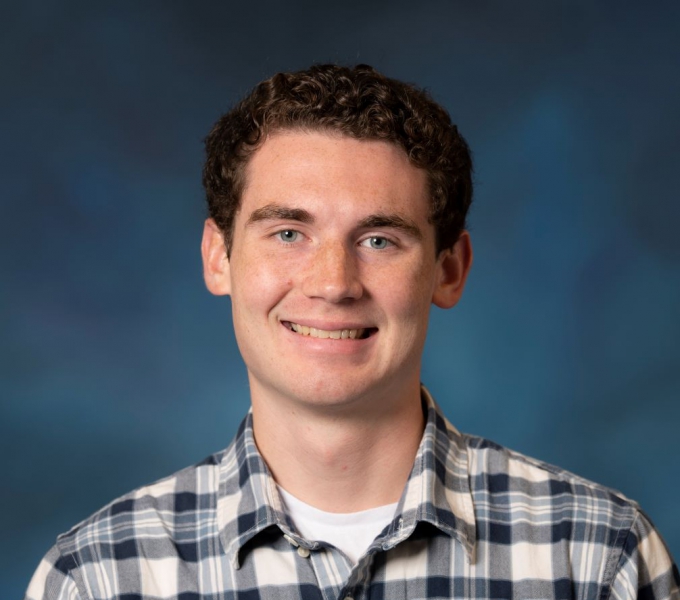
Ryan Cecil is a Ph.D. candidate in the Department of Statistics at the University of Pittsburgh. He is generally interested in the theory and application of methods at the intersection of statistics and machine learning. His primary research focus is on model selection and interpretability. Within these areas, his current work focuses on constructing methods to investigate if classes of simpler and more interpretable statistical models can perform on par with more complex black-box machine learning approaches. Previous experience in applying AI methods to computer vision, population genetics, and natural language data has shown Ryan both the power and limitations of these tools. Through GAINS, he hopes to promote safe and effective applications of AI while deepening his understanding of the emerging use cases of these methods.
Previous Interns
GAINS has been enriched by the contributions of these amazing graduate students who helped shape our community in its early days. Their diverse perspectives and experiences continue to influence our approach.
Ali Hassan

Ali is a PhD student in Ethnomusicology at the University of Pittsburgh. His research explores how South Asian Americans blend traditional and popular music, creating meaning both in American urban spaces and online. He approaches the American city and virtual platforms as intertwined ethnographic fields, with digital ethnography at the heart of his work. As a performer and educator, Ali bridges Hindustani, ghazal, rock, and experimental music traditions through collaboration and storytelling. Motivated by a desire to address educational inequalities faced by international students and scholars navigating class and language barriers, he sees the GAINS program at Pitt as an opportunity to promote meaningful and accessible AI awareness.
Isil Idrisoglu
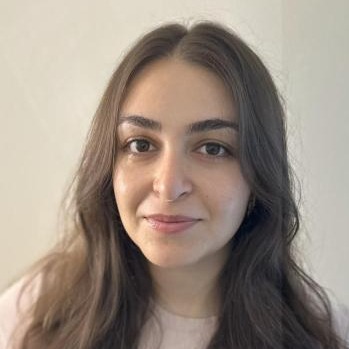
Isil is a Ph.D. candidate in the Department of Political Science at the University of Pittsburgh, specializing in political violence, civil wars, terrorism, and counterterrorism studies. She is also interested in formal modeling and computational methods for the social sciences. Her research focuses on understanding the strategic choices of armed groups and the dynamics of conflict. Through the GAINS initiative, Isil hopes to deepen her understanding of AI tools for graduate education, promote critical and ethical approaches to their use, and help make these methods more accessible to researchers.
Kaveen Tennakoon
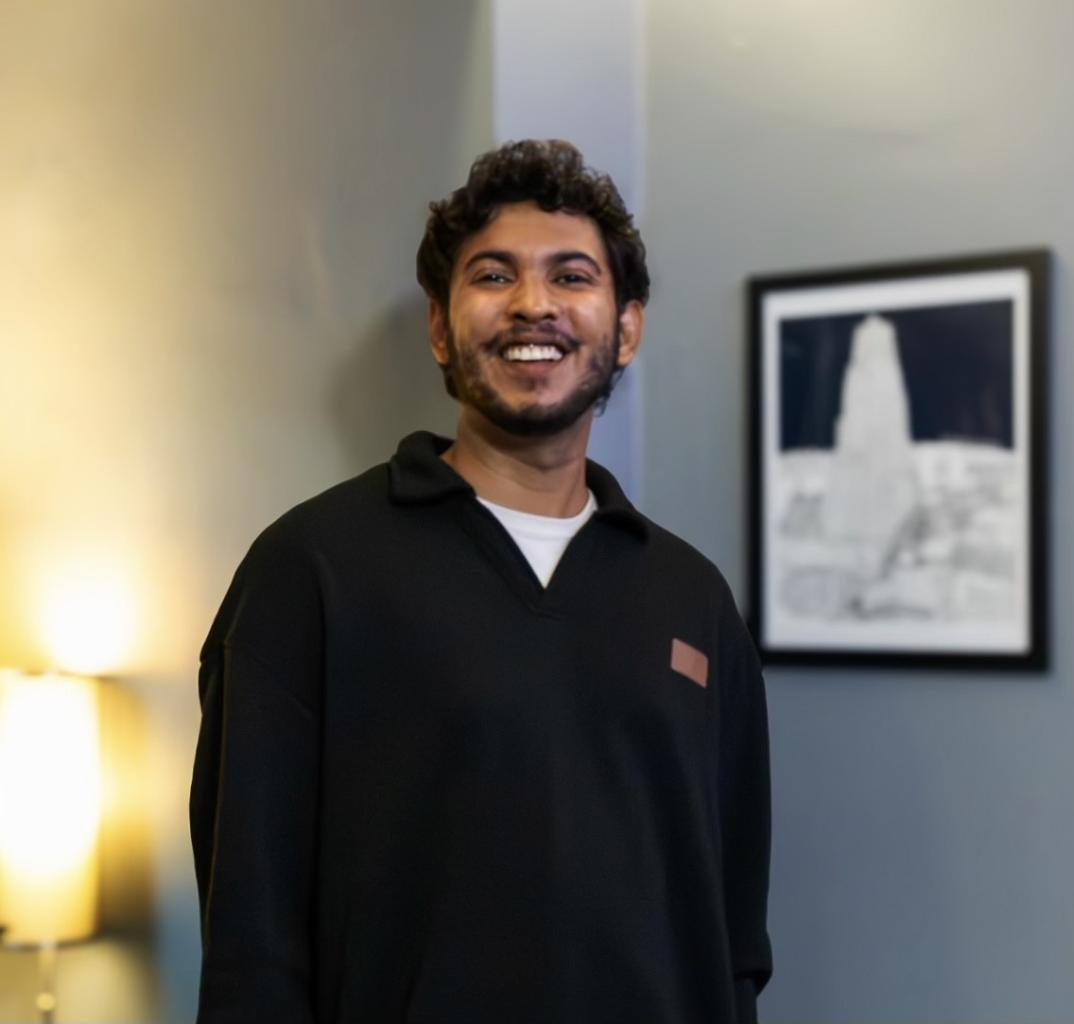
Kaveen is pursuing a PhD in Chemistry at the University of Pittsburgh's Department of Chemistry, focusing on noble metal nanochemistry research. His work centers on unraveling the formation pathways of nanoparticles, using both experimental and computational approaches to understand the complex kinetic and thermodynamic factors that drive metallic nanostructure growth. As a member of GAINS, he is passionate about building community around the creative use of AI tools in scientific research and graduate education. Kaveen is especially excited to connect with others who can help him explore the unknowns in nanoscience through AI, and he looks forward to collaborating to generate new AI tools that push the boundaries of discovery in chemistry.
Michael Itkin
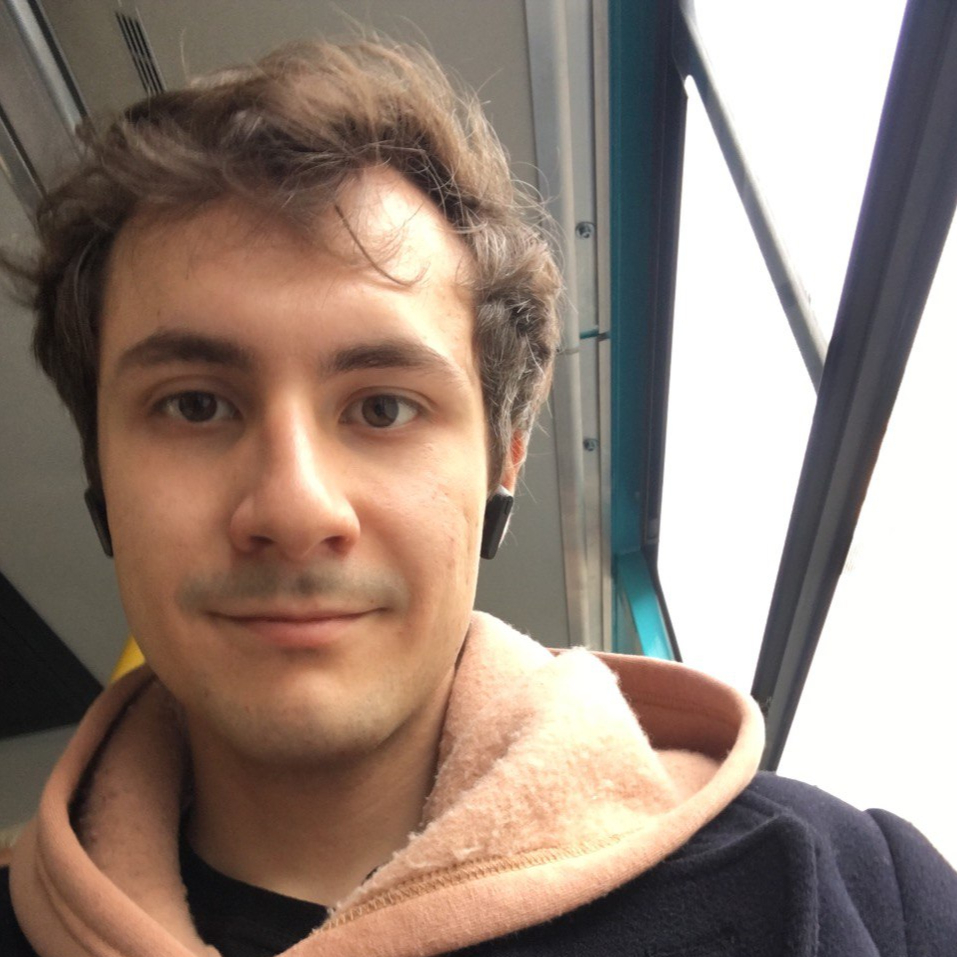
Michael (Mikhail) is a PhD student in the joint Slavic and Film Studies program at the University of Pittsburgh. His research interests revolve around Soviet and post-Soviet film, media, literature, and popular culture. Motivated by an interest in the production and dissemination of knowledge in the post-truth era, he sees GAINS as an opportunity to explore the universal appeal of AI and to advocate for an optimistic yet critical approach to its tools for studying cinema, languages, and human experience.
Paula Orozco Espinel

Paula is a PhD Candidate in the Department of History, specializing in the history of women and sexuality in Latin America and the United States. Her dissertation research focuses on the role played by Colombian women in global birth control policies and reproductive rights activism during the second half of the 20th century. As a member of GAINS, she is committed to promoting fair engagement with AI tools and encouraging diverse students to use them mindfully, while also raising awareness of their biases and limitations.
Rose Gatfield-Jeffries

Rose (she/her) is a PhD student in the Department of History and Philosophy of Science, specializing in the philosophy of biomedical sciences and feminist philosophy of science. She holds interests in the integration of AI tools into scientific reasoning and medical knowledge production. Within the GAINS community, she is hoping to explore and advocate for the responsible use of AI in university classrooms, with an emphasis on preserving the integrity and creativity central to higher education in the humanities.
Leila Nilipour
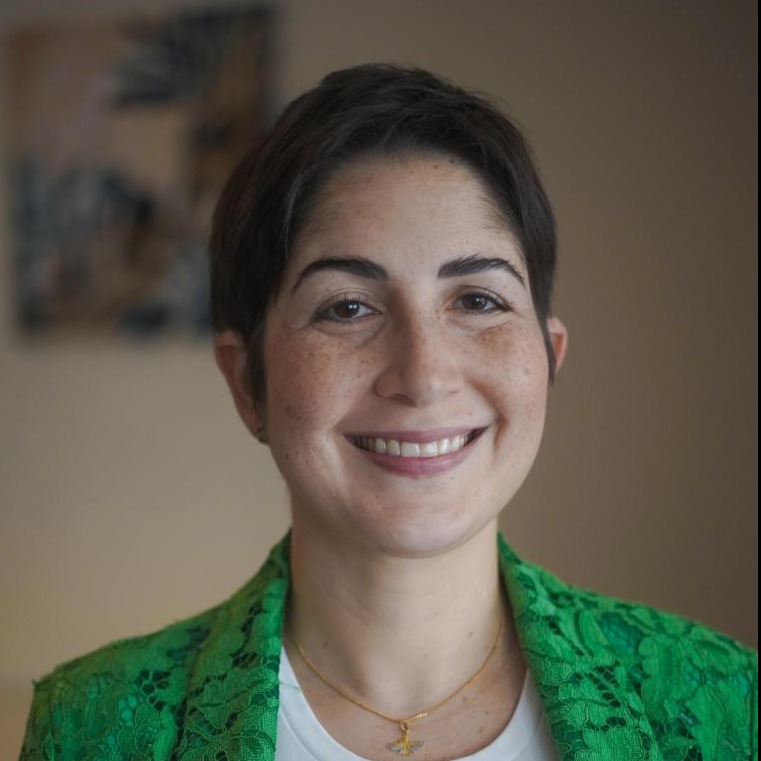
Leila (she/her) is a first-year graduate student in History at the University of Pittsburgh, specializing in the intersections of gender, honor, and reputation among Central American women in the 19th and 20th centuries.
Before beginning her graduate studies, she worked as a journalist in Panama, co-founding Indomables, the country’s first narrative non-fiction podcast, which became a multi-award-winning project. She also worked at the Smithsonian Tropical Research Institute in Panama, translating scientific research into bilingual communications materials.
As a member of GAINS, Leila is interested in exploring how the underrepresentation of women's History in open knowledge platforms may influence the biases of generative AI systems.
Addison Eldin

Addison is a doctoral candidate in the English Composition Program. Her dissertation and teaching have both engaged with generative AI and its effects on writing, writing pedagogy, and other domains of humanistic inquiry such as the study of narrative. As part of the GAINS team, she looks to connect her work to the broader community of people at Pitt exploring the applications and ramifications of AI in their own research and teaching.
Bowei Ouyang

Bowei is a doctoral candidate from Department of Mathematics. His projects and researching interests focus on dynamic systems, navigational algorithms with reinforcement leaning and machine learning classifications algorithms. As a member of the GAINS team, he looks to contribute his knowledge to the people of Pitt community and help explore the applications of AI technology to enhance their own research.
David Lo

David Hsu-tai Lo is a first year MFA student in The Writing Program. He is a poet, translator, and photographer. His poetry concerns itself in how the boundaries of identity and imagination are prescribed through inheritances of visuality, sovereignty, and possibility. As a member of GAINS, he is excited to be in community with others concerned and curious about the proliferation of engagement with AI tools in the use of artmaking and in the Humanities.
Daniel Crawford

Daniel is in the final semester of his MA in Linguistics, where he studies language structure, cognition, and computational approaches. He leverages techniques from a variety of disciplines to learn about language. He is interested in the why’s and how’s of AI models and the aspects of human externalization in the models. He also holds MS and ME degrees.
Mehul Bhushan
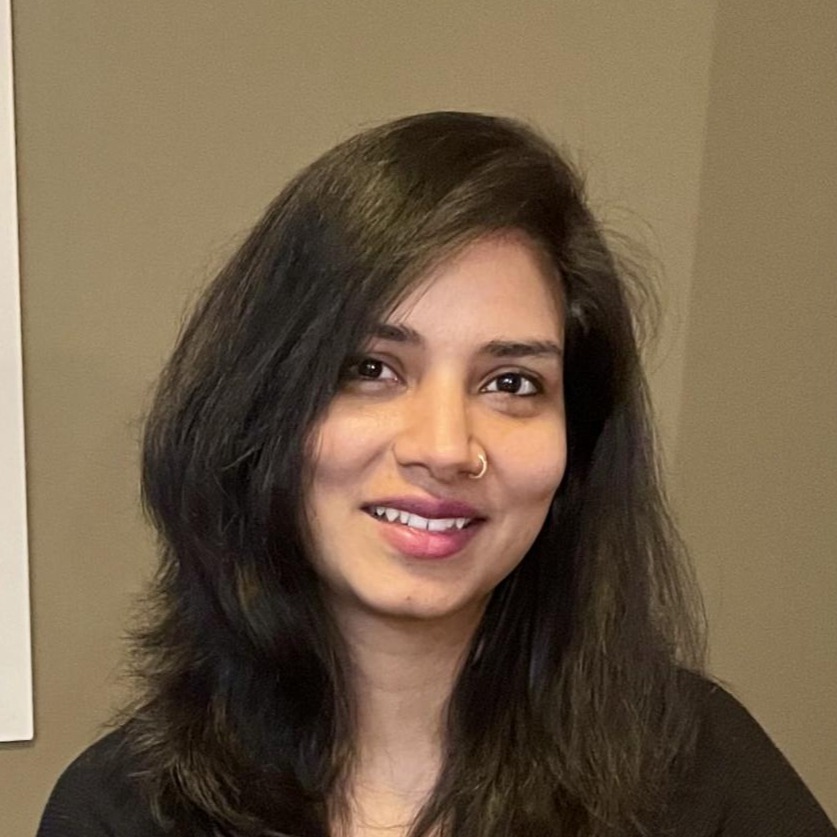
Mehul is a PhD Candidate in the Department of Communication and Rhetoric, specializing in AI and Communication Policy Studies. Her dissertation research focuses on how policymakers in the United States contend with multiple actors such as big technology companies, civil society activists, and academia in making policies that ensure the development of fair and trustworthy AI. As a GAINS member, she is committed to promoting AI literacy and generating public-facing conversations around AI.
Get Involved
Ready to join our community? There are lots of ways to participate:
-
Attend our workshops and speaker events.
-
Contribute your own AI Bite.
-
Join our monthly newsletter.
-
Connect with other members.
Whether you're just starting your AI journey or you're already experimenting with advanced tools, you belong here.
